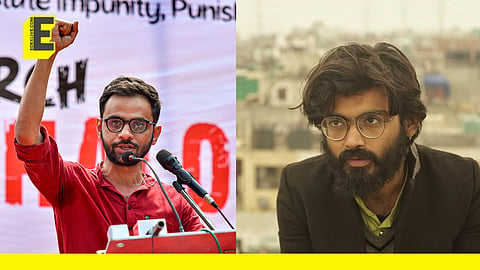

Today, Tuesday, September 2, the Delhi High Court refused bail to student activists and former Jawaharlal Nehru University (JNU) scholars Umar Khalid and Sharjeel Imam, as well as seven other individuals accused under the Unlawful Activities Prevention Act (UAPA) in the 2020 Northeast Delhi riots.
Other people implicated in the case include Athar Khan, Khalid Saifi, Mohd Saleem Khan, Shifa ur-Rehman, Meeran Haider, Gulfisha Fatima, and Shadab Ahmed. Umar Khalid has been behind bars since September 2020.
A bench of Justices Navin Chawla and Shalinder Kaur dismissed their appeals against trial court rulings that denied them release, stating that there was no basis for granting bail under the provisions of the UAPA cited in the case, The News Minute reports.
In July of this year, the Justice Chawla-led Bench deferred its ruling after hearing oral arguments from the accused and Solicitor General Tushar Mehta, who represented the Delhi Police.
Opposing the bail pleas, Solicitor General Mehta, the Union government's second-highest law officer, stated that the accused individuals' lengthy incarceration should not be used to justify their release on bail pending trial because they were involved in a "well-orchestrated criminal conspiracy" to bring the "entire country to shame" ahead of US President Donald Trump's visit in 2020.
He also claimed that there was a plot "to divide the nation based on a particular religion".
They were all arrested following significant protests against the Citizenship Amendment Act (CAA).
The contentious Citizenship Amendment Act (CAA), passed by the Bharatiya Janata Party (BJP)-led Union government in 2019, sought to expedite citizenship for illegal immigrants from Afghanistan, Bangladesh, or Pakistan who identify as Hindu, Sikh, Buddhist, Jain, Parsi, or Christian.
The Act specifically excluded Muslims, sparking nationwide protests charging that the measure violated the ideals of the Indian constitution.
